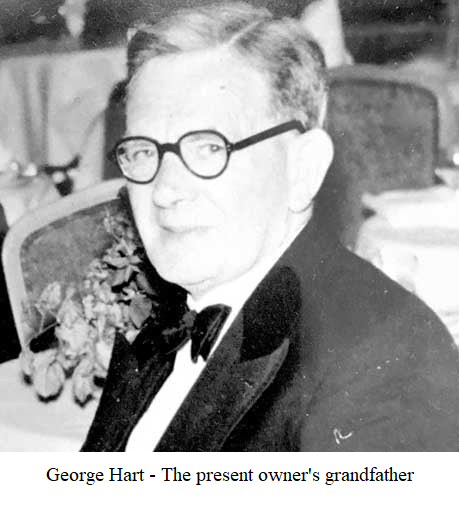It is so important to look after any jewellery properly, especially antique pieces, most of which are unique, expensive items that cannot be replaced.
Caring For Antique Jewellery
Caring for these pieces can be difficult because they move around while they are being worn. Delicate crystals or stones can become damaged or even shatter if they knock against a hard surface. Gold rings too, can become worn through if worn constantly, especially if they are worn next to rings made of harder metals.
According to BADA, the British Antique Dealers’ Association, the leading association for the design, antiques, and fine art community, there are several essential things that you should do, to care properly for your antique jewellery, including:
- Avoid perfume and hair products – always make sure to use perfumes and hair products before wearing your antique jewellery, because these can stain gold and silver and dissolve the surface of pearls. Make sure that the products are perfectly dry before putting on your jewellery.
- Keep your antique jewellery away from heat, dry atmosphere, and water
Heat
- The colours of turquoise and topaz will change when exposed to strong light for a long time.
- Opals crack and chip easily when they’re exposed to heat.
- Ivory cracks when exposed to heat, the hot sun, or a dry atmosphere.
- Pearls will become dark and yellow and lose their lustre if they become too dry.
Water
- Aquamarines, emeralds, opals, and sapphires can shatter when immersed in hand-hot water.
- Ivory can crack if it gets wet.
- Other factors to consider
- Although diamonds can’t be harmed when exposed to water, they can crack if knocked too hard.
- Simulated stones can gradually fade over the years.
- Costume jewellery is frequently made from base metals like copper and brass and might become rusty.
How To Keep Your Antique Jewellery Safe While Wearing It
It is essential to check fastenings, settings, and chain links regularly, to keep them safe when you put them on. Constantly opening and closing clasps weakens them, and the sharp edges on pearls and beads could cause the thread on which they’re strung, to become frayed. Keep your antique pieces safe by doing the following:
- It is said that a pearl's natural lustre is improved by the skin’s natural oils. However, pearls should be checked and re-strung by professionals, every six months or so. A professional will use the correct thread and put a knot between each pearl to prevent them from rubbing against each other. Knots between pearls will also prevent them from scattering everywhere, should the thread break.
- When wearing a heavy brooch, pin it to the strap of an undergarment and the material of the outfit you are wearing. Also, it would be a good idea to have a safety chain fitted to the brooch.
The Correct Way To Store Your Vintage Jewellery
Ideally, you should keep your vintage pieces in individual boxes, or wrap each piece in a pure cotton or linen cloth to prevent accidental damage. For example, accidental contact could cause diamonds to scratch the gold or silver, as well as the softer gems of other jewellery items, if kept together.
Precious gems, glass, cameo, shell, enamel, and ivory, are some of the materials used in antique jewellery, all of which could get chipped if they are stored with items made from harder materials.
Strings of beads and necklaces can be wound around or hung from a roll of paper that is acid-free, to prevent them from becoming tangled.
Tips To Clean Your Antique Jewellery And Gemstones
It is vital that you know what materials your vintage jewellery is made from before you can start cleaning. The best way to do this is to take the pieces to a professional jeweller who will be able to tell you what the materials are and how best to clean them.
If you don’t know how to clean vintage jewellery or are unsure as to how to go about it, then it is highly recommended that you rather take your vintage pieces to a qualified jeweller, for professional cleaning.
If you do want to try cleaning your jewellery pieces on your own, then do note the following:
- Never immerse porous gemstones like pearls and opals in water, because they will lose their natural lustre. These, and most other metal vintage pieces, can be wiped gently with a chamois leather that is slightly damp or buffed gently, using a soft jeweller’s cloth.
- Do note though, that rolled and plated gold will become worn if rubbed too much, and don’t ever attempt polishing the gold with a matt finish, found on certain 19th-century antique pieces.
- If the thread of a bracelet or necklace gets wet, it will shrink and rot, eventually.
- Enamel is an extremely fragile material and should only be blown clean or dusted gently.
- If beads are water-resistant, they can be cleaned one at a time, with slightly moistened cotton buds.
- Do not allow the gemstones in a closed setting to get wet, because water might get lodged at the back of the stones and either weaken the glue or trigger corrosion. Rather use a cotton bud dipped in pure, clear alcohol, rinse, and then dry with a few new cotton buds.
- If your pieces contain ivory, then make sure to only clean it with a soft-bristled, dry brush, because the ivory will absorb stains and water. Go to an expert to have any ingrained dirt removed professionally.
- If you are 100% certain that your costly antique piece can be immersed in water safely, then wash it in a bowl, instead of risking losing it forever, down the plughole of the sink. Add a few drops of non-ionic soap into some lukewarm water, immerse the jewellery, and gently remove the dirt with a soft brush, or wooden toothpick for stubborn grime. Rinse the piece in a bowl of clean water and allow to air dry on a few sheets of kitchen towel. Jet, silver, gold, and cameo items can all be cleaned this way.
In Conclusion
Owning exquisite pieces of antique jewellery is both an exciting and expensive investment. However, just like modern-day jewellery, antique pieces will also need cleaning from time to time or even repairs, should they become damaged in some way. If this happens, then make sure to take your jewellery to an expert, who will do a proper, professional job for you. By doing this, you will be making sure that the jewellery you love and enjoy so much, will last for many more years to come.
Contact us at Vintage Tom to appraise your antique jewellery. Don't forget we buy your unwanted antique or vintage jewellery



